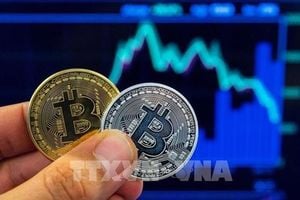Every August, the city of Edinburgh transforms into a vibrant stage for the world’s largest arts festival, drawing performers, artists, and audiences from across the globe. The Edinburgh International Festival and the Fringe, both approaching their 80th anniversaries in 2025, have long been celebrated for their boisterous energy and spirited exchange of ideas. But beneath the confetti, laughter, and applause, a more complex story unfolds—one that probes the very heart of cultural freedom: is Edinburgh still the defender of free speech it once was?
It’s a question that echoes through the city’s cobbled streets and bustling venues, especially as global events like the invasion of Ukraine, the Israel-Gaza war, climate change, and identity politics continue to shape the tone and content of the festivals. According to BBC, these issues aren’t just discussed on stage; they’re lived by the young performers, visitors, and support staff who bring their own convictions and debates to the city each year. Edinburgh in August, as any veteran attendee will attest, is not for the fainthearted. It’s noisy, polarized, and—perhaps most importantly—always has been.
Take a walk through the festival’s history and you’ll find that controversy is nothing new. In 1963, for example, two artists found themselves in court for public indecency after an avant-garde show at McEwen Hall featured a nude model wheeled across the organ gallery. The case, dubbed "Lady McChatterley," ended in acquittal, but dominated headlines for weeks. The city’s Lord Provost lamented that three weeks of glorious festival should be "ruined by one squalid incident." Yet, as BBC notes, the uproar only fueled the festival’s reputation for pushing boundaries.
Six years later, in 1969, a scene in Christopher Marlowe’s Edward II—in which two men kissed—sparked outrage from Councillor John Kidd, who called it "disgusting" and "filthy." One of the actors involved was none other than Sir Ian McKellen, who would later recall Kidd’s name and complaint with a wry sense of irony during a later festival appearance. These moments, while shocking to some, became defining features of Edinburgh’s willingness to challenge societal norms.
In the decades that followed, the city produced its own moral guardians. From the mid-1980s, Conservative councillor Moira Knox emerged as a symbol of conservatism at the festivals, frequently denouncing what she saw as moral depravity. Her ire was often directed at American impresario Jim Rose, whose shows featured extreme acts—piercing, regurgitation, chainsaw-juggling, and the infamous "Amazing Mr Lifto," who lifted weights with parts of his body best left unnamed. According to BBC, Knox never attended a Rose show, but her public condemnations generated media frenzy and, ironically, sold more tickets. Promoters even created "The Moiras"—awards for the most offensive show on the Fringe—as a tongue-in-cheek tribute to her notoriety.
But if the past controversies were largely driven by conservative voices, today’s disputes often originate from the opposite end of the political spectrum. Three years ago, comedian Jerry Sadowitz—renowned for his unfiltered act—had a show at the Pleasance canceled after the venue received "a number of complaints" about offensive content. Ticket holders for "Not for Anyone" were left angry and confused, reports BBC. Sadowitz returned a year later for two sold-out gigs at Queens Hall, but the incident sparked a broader debate: where should the line be drawn between challenging art and unacceptable offense?
The tension reached new heights in 2023 when climate activist Greta Thunberg was scheduled to headline the Edinburgh International Book Festival, in what was set to be one of the event’s biggest draws. Weeks before her appearance, Thunberg pulled out, citing the festival’s 20-year sponsorship by Edinburgh-based asset managers Baillie Gifford, who invest in fossil fuels. Thunberg’s withdrawal, according to BBC, sent shockwaves through the literary world. Authors lobbied for the festival to drop Baillie Gifford’s sponsorship, staged walkouts, and promised to escalate protests the following year. The domino effect saw nearly every book festival in the UK reject Baillie Gifford’s support.
By 2025, the Edinburgh International Book Festival faced a £300,000 funding gap due to the loss of sponsorship, a shortfall ultimately covered by a Scottish government grant. But rather than embrace the controversy, organizers took a more cautious approach. This year’s program included former First Minister Nicola Sturgeon’s memoir but notably excluded The Women Who Wouldn’t Wheesht, a collection of essays by campaigners who challenged Sturgeon’s gender self-identity legislation. The National Library of Scotland, too, left the book out of its centenary exhibition, following advice from a small group of activists who claimed it constituted "hate speech." Over at Summerhall, a publicly funded venue that only narrowly survived redevelopment, management apologized to artists for allowing Deputy First Minister Kate Forbes—known for her gender critical views—to appear in a pre-booked event by The Herald newspaper. The apology itself became a flashpoint, highlighting the difficulty of navigating conflicting demands for inclusion and exclusion.
The stakes are high, particularly for organizations that rely on public funding. Former SNP minister Fergus Ewing has tabled a motion in the Scottish Parliament, calling on the government to require that any arts body receiving public funds must honor freedom of expression under the law—or risk losing their grant. As BBC points out, at risk is nothing less than Edinburgh’s reputation for defending the foundational principle of any cultural festival: freedom of speech, for all views, not just those favored by one group or generation.
In the midst of these debates, the festival continues to celebrate new voices. On August 24, 2025, The Times reviewed Sam Nicoresti’s comedy show, which took home the prestigious Edinburgh Comedy Award at this year’s Fringe. The recognition for Nicoresti is a reminder that, despite the turbulence, Edinburgh remains a launchpad for talent and a crucible for creative risk-taking.
Yet, as the International Festival and the Fringe approach their milestone 80th anniversaries, the question lingers: will Edinburgh’s festivals continue to champion the messy, noisy, and sometimes uncomfortable freedom of expression that has defined them for generations? Or will the pressures of modern politics, funding, and activism force them into safer, quieter territory?
For all the noise, one thing remains clear—freedom of speech is the beating heart of these festivals. As history shows, it’s up to audiences to decide what they see, what they skip, and what they protest. The future of Edinburgh’s festivals, and their reputation as defenders of free expression, depends on the courage to keep that choice alive.




